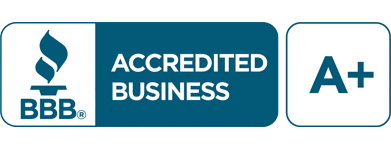Plumbing Time? We all need plumbing work occasionally. Faucets in the house may be leaking, the bathroom commode runs and runs after each use, or that leak under the sink is too substantial for the bucket placed there.
These little repairs are everyday fixes for your local plumber. While some people will try to fix these small repairs themselves to save a few dollars, often they find out it would have been better to call a licensed plumber to start.
It really is in your best interest to call a licensed plumber. The following information is meant to help homeowners understand the importance of obtaining required plumbing permits and only working with a licensed plumbing company. Please note that the following information while helpful, may not be up to date or may contain some incorrect information, so do your own research into current laws, plumbing codes and permits needed for Atlanta plumbing and the state of Georgia.
In our state, Georgia requires plumbers to be licensed to perform certain work. Some may think this is an excuse for creating another department at the state level that we have to support. On more detailed examination, we can discover that the plumbing license is a safeguard against charlatans and a way to enforce the codes designed for our protection.
Plumbing License
In Georgia, you may not just decide one day to become a plumber. The state of Georgia has specific requirements for licensed plumbers, the parameters of the different licenses and requires annual re-registration of plumbers. This enables us to keep track of who is licensed in the state, how long they have been licensed and what kind of work they are legally permitted to perform.
This is information that is available to you also. By checking into that licensee of a plumber you are considering for a project, you can discover if he or she is legally permitted to undertake the project. This is important because if your plumber neglects a permit, you, the owner, are responsible for the fines and corrections.
We invite you to read the following overview of plumbing license in our state. Becoming familiar with the process may engender a higher respect for your local licensed plumber as you understand all he or she has to go through for that license. Additionally, you will learn the complexities of code enforcement that are the responsibility of the state and an everyday concern for your plumber. All of these factors combine to support our license system and encourage you to consider a licensed plumber for your next plumbing task.
The first level plumber we recognize is apprentice. An apprentice plumber is an acknowledged, unlicensed role. You don't have to be an apprentice before you can undertake any more advanced level, but as it is customary, we recognize it. This is your entry into the profession, working under the supervision of an experienced, licensed plumber.
Becoming a Journeyman
The first licensed plumber we recognize is journeyman. To attain a journeyman license, you have to have three years of experience working as a plumber, provide three references from licensed plumbers, pay the required fees and pass the journeyman exam. There is no specific classroom time required, though most plumbers at this stage find classroom instruction helpful. In the classroom, plumbers have a better opportunity to study the code requirements, only a portion of which they may have learned on the job.
The journeyman exam is an opportunity for the prospective plumbers to demonstrate their skills, problem-solving ability, calculation abilities and knowledge of the Georgia code and laws. The exam takes five hours to complete.
Notice the structure of license. We require experience, which we assume to be under the guidance of an experienced craftsman, and we require endorsement from three other plumbers. This is an important aspect of the process. It means that the prospective plumbers have to gain the respect of their own supervisor and two other experienced plumbers. This ensures that the new plumber has demonstrated the required skills to at least three people and that those three people are ready to put their names and reputations on the line for the applicant.
Master Plumber I
Having read the requirements for a journeyman plumber, you can extrapolate that the requirements for the succeeding levels are similar though more rigorous. Each license requires more experience, additional endorsements and the next level exam along with the required fees and exams. It is this combination of years of experience, support of more experienced technicians combined with the examination that ensures the people of Georgia are receiving legal, professional services. The term "legal" here means that the changes implemented by your licensed plumber conform to the code and legislative requirements of the state instituted to support the best environment for the citizenry.
Georgia's master plumber I license enables the plumber to work on single-family dwellings, single level dwellings designed for two or fewer families and commercial structures of 10,000 square feet or fewer. Notice that this is the first level approved for commercial plumbing meaning that the plumber must at this point have started learning the code requirements of commercial buildings.
This license also requires three recommendations but for the master level, one of those recommendations must be from another master plumber. They must have the journeyman license, and been active as a journeyman for at least two years with a total of a minimum of five years working as a plumber, and, of course, pass the test.
Master Plumber Class II: Unrestricted
The highest level license for plumbers in Georgia is the master plumber II. The key addition to this level is that candidates must be able to demonstrate experience in commercial and industrial plumbing. Master plumbers II are licensed to work in commercial and domestic environments. They demonstrate mastery of the commercial and domestic codes and laws during their examination.
Master plumber class II includes an active journeyman license for two years, five years in the trade, passage of the master plumber exam, the three references mentioned above and all necessary fees.
Training classes are available to prepare plumbers for all test levels. Many local professional schools offer classes to enable a broad understanding of plumbing challenges and situations. Of course, there also exist classes that teach the code and legislation that governs plumbing.
Why Should Anyone Care About a Plumbing License?
Now we get to the point. As a homeowner in Georgia, who is not considering becoming a plumber, why should I be interested in plumbing license?
For one thing, it is important for the citizenry to know what their government is doing. We demand safe homes and deed to the state the enforcement the parameters for safe homes and businesses. This process is how Georgia serves the people of the state. This is how our taxes work to support our personal safety and standards of living.
Here's another reason why: We all purchase properties with plumbing structures with the understanding that our plumbing is up to code. Many of us undertake small repairs such as the occasional leak or clogged drain without calling a plumber. Such repairs are not likely to create a code violation in our home or business.
However, when we are considering more substantial changes, hiring a licensed plumber has many advantages and securities. Your licensed plumber:
- Takes responsibility for all code issues associated with the change.
- Recognizes when work requires a permit.
- Takes responsibility for permit applications as needed.
- Arranges the specific circumstances for each permit inspection.
As the property owner, you are always legally responsible for the conditions in your house. You may install your own new bathroom if you want. However, in the process, without the detailed knowledge of plumbing codes, you may cause problems that will have to be corrected later. The better part of valor suggests that doing any project correctly the first time is preferable.
An Additional Word About Permits
There is no question that you can learn when you need a plumbing permit. You can apply for it and schedule the inspector. You can even establish the conditions necessary for each phase of the inspection as needed. However, each of these steps will almost certainly require a great deal of research on your part. Some of the inspections require very exact requirements for the inspection. For example, you may have to fill the pipes with water for some inspections; they must be dry for others. Most require that you stop work, leaving the pipes exposed for each inspection.
You can learn all this; but if you hire a licensed plumber, you don't have to undertake this new field of study. Your licensed plumber should know the code and law already and can time the permits and inspections to lose the least amount of productive time.
How the License and Plumbing Permit System Helps You
As home and business owners, most of us do not learn state plumbing codes and laws; however, we are subject to them all the same. Code and legal violations have penalties associated with them to ensure conformity and to support the conditions considered minimal for appropriate domestic and commercial plumbing. By hiring a licensed plumber, you increase the chances that your plumbing will be executed to code, with appropriate permits and inspections; it's the best route to safety and carefree sleep.
We offer plumbing services in the greater Atlanta Metro, including:
Fulton County, Bartow County, Cobb County, Paulding County, Cherokee County, Gwinnett County, and Douglas County.
Acworth GA, Atlanta GA, Austell GA, Cartersville GA, Doraville GA, Douglasville GA, Hiram GA, Kennesaw GA, Lawrenceville GA, Lithia Springs GA, Loganville GA, Mableton GA, Marietta GA, Powder Springs GA, Rockmart GA, Roswell GA, Smyrna GA, Tucker GA, Villa Rica GA, Vinings GA, Woodstock GA, and surrounding communities.




